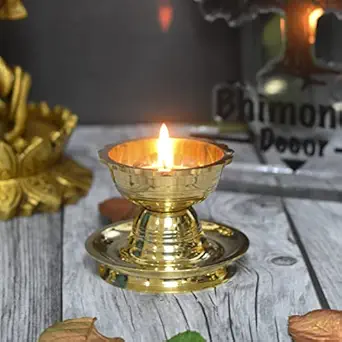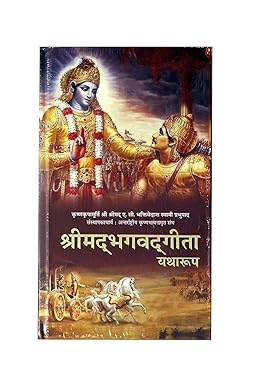परिचय: गुड़ी पड़वा महाराष्ट्र में विशेष रूप से मनाया जाने वाला एक महत्वपूर्ण हिंदू त्योहार है। यह हिंदू चंद्र कैलेंडर के अनुसार नए साल की शुरुआत को चिह्नित करता है, जो आमतौर पर मार्च या अप्रैल में पड़ता है। यह त्योहार बहुत उत्साह के साथ मनाया जाता है और इसे नए प्रारंभ और समृद्धि का प्रतीक माना जाता है।
ऐतिहासिक महत्व:
- नए साल का उत्सव: गुड़ी पड़वा को मराठी नए साल के रूप में मनाया जाता है। "गुड़ी" का मतलब होता है सजाए गए पोल से, और "पड़वा" हिंदू कैलेंडर के चैत्र महीने के पहले दिन को दर्शाता है। यह त्योहार नए साल की शुरुआत को चिह्नित करता है और लोगों के लिए नए उद्यमों की शुरुआत और पुनःcommitments का समय होता है।
- ऐतिहासिक घटनाएँ: यह त्योहार छत्रपति शिवाजी महाराज, मराठा साम्राज्य के संस्थापक, की विजय से भी जुड़ा हुआ है। इस दिन को शिवाजी महाराज के राज्याभिषेक और उनके शासन की स्थापना की स्मृति में मनाया जाता है।
सांस्कृतिक महत्व:
- धार्मिक अनुष्ठान: गुड़ी पड़वा में विभिन्न धार्मिक और सांस्कृतिक अनुष्ठान शामिल होते हैं। घरों की सफाई की जाती है और सजावट की जाती है, और एक गुड़ी (सजाया गया पोल) घर के बाहर फहराया जाता है जो समृद्धि और विजय का प्रतीक होता है। लोग मंदिरों में जाकर प्रार्थनाएँ करते हैं और आने वाले साल के लिए आशीर्वाद प्राप्त करते हैं।
- उत्सव: त्योहार के दिन पारंपरिक संगीत, नृत्य, और उत्सवी भोजन के साथ जोशपूर्ण उत्सव मनाया जाता है। खास व्यंजन जैसे पूरन पोली, जो कि गुड़ और दाल से भरी हुई एक मीठी चपाती है, तैयार की जाती है और आनंद ली जाती है।
- सामुदायिक गतिविधियाँ: दिन के दौरान जुलूस, सांस्कृतिक कार्यक्रम, और मेलों का आयोजन किया जाता है। लोग पारंपरिक परिधानों में सजते हैं और माहौल खुशी और उल्लास से भर जाता है।
रिवाज और उत्सव:
- तैयारी: घरों को रंगीन रंगोली (फ्लोर डिज़ाइन) और फूलों से सजाया जाता है। गुड़ी, जो कि एक बांस की छड़ी होती है जिस पर रंगीन कपड़ा, माला, और एक चांदी या ताम्बे का बर्तन लगाया जाता है, घर के प्रवेश द्वार पर रखी जाती है।
- अनुष्ठान: दिन की शुरुआत सुबह जल्दी के अनुष्ठानों के साथ होती है, जिसमें गुड़ी फहराना और प्रार्थना करना शामिल होता है। परिवार एकत्र होते हैं और उत्सवी भोजन और मिठाइयों का आनंद लेते हैं।
- समुदायिक भागीदारी: गुड़ी पड़वा सामुदायिक मिलन और उत्सव का समय होता है। लोग सांस्कृतिक गतिविधियों में भाग लेते हैं, पारंपरिक संगीत और नृत्य का आनंद लेते हैं और भोज में शामिल होते हैं।
आधुनिक समय की उत्सव: गुड़ी पड़वा को उत्साह के साथ मनाया जाता है और इसमें आधुनिक तत्वों को भी शामिल किया गया है जैसे सामुदायिक कार्यक्रम, सार्वजनिक प्रदर्शन, और सोशल मीडिया एंगेजमेंट। बावजूद इसके बदलाव के, त्योहार अपनी पारंपरिक आत्मा को बनाए रखता है और एक महत्वपूर्ण सांस्कृतिक घटना बना रहता है।
Introduction
Overview of Gudi Padwa
Gudi Padwa is the Marathi New Year celebrated in Maharashtra with vibrant rituals feasts and cultural events.
Significance of Gudi Padwa
The festival marks the beginning of the Hindu lunar calendar and symbolizes prosperity new beginnings and hope.
Historical Background
Gudi Padwa has been celebrated for centuries to honor Lord Brahma and the harvest season.
Importance of Cultural Traditions
The festival emphasizes family unity devotion and the preservation of Marathi culture.
Family and Community Bonding
Families gather to decorate homes prepare traditional dishes and participate in community festivities.
Festive Rituals
Gudi Raising Tradition
A decorated Gudi is raised outside homes as a symbol of victory prosperity and good fortune.
Preparation of Traditional Sweets
Special sweets like Puran Poli are prepared and shared among family members and neighbors.
House Decoration
Homes are cleaned and decorated with rangoli flowers and mango leaves to welcome the New Year.
Temple Visits
Devotees visit temples to offer prayers and seek blessings for health wealth and prosperity.
Cultural Programs
Communities organize folk dances music performances and traditional games to celebrate Gudi Padwa.
Spiritual Significance
Symbolism of Gudi
Gudi represents victory spiritual upliftment and the triumph of good over evil.
New Beginnings
Gudi Padwa encourages renewal of life setting intentions and embracing positive changes.
Devotion and Faith
Devotees express devotion through prayers rituals and cultural observances to invoke divine blessings.
Community Harmony
Observing rituals fosters unity mutual support and harmony among families and communities.
Prosperity and Well-being
Gudi Padwa celebrations focus on prosperity happiness and spiritual growth for all participants.
Preparation and Planning
Home Cleaning and Decoration
Homes are cleaned rangoli is drawn and Gudi is placed for auspicious beginnings.
Buying Puja Items
Devotees prepare flowers mango leaves turmeric sweets and other items required for rituals.
Organizing Community Gatherings
Communities arrange cultural programs prayers and feasts to encourage participation and bonding.
Scheduling Rituals and Feasts
Participants plan temple visits Gudi raising and festive meals for smooth celebrations.
Safety Precautions
Precautions are taken during cooking gathering and festive decorations to ensure safety.
Cultural Celebrations
Regional Variations
Gudi Padwa customs vary across Maharashtra reflecting local traditions and cultural diversity.
Folk Songs and Dances
Folk music traditional dances and devotional songs enrich the festive spirit.
Special Rituals
Additional rituals like worshiping elders and performing charitable acts are observed in some communities.
Community Participation
People gather in public spaces temples and homes for collective celebrations.
Global Celebrations
Gudi Padwa is celebrated worldwide by Maharashtrian communities promoting cultural awareness internationally.
Gudi Padwa is the Marathi New Year celebrated in Maharashtra with vibrant rituals feasts and cultural events.
The festival marks the beginning of the Hindu lunar calendar and symbolizes prosperity new beginnings and hope.
Gudi Padwa has been celebrated for centuries to honor Lord Brahma and the harvest season.
The festival emphasizes family unity devotion and the preservation of Marathi culture.
Families gather to decorate homes prepare traditional dishes and participate in community festivities.
A decorated Gudi is raised outside homes as a symbol of victory prosperity and good fortune.
Special sweets like Puran Poli are prepared and shared among family members and neighbors.
Homes are cleaned and decorated with rangoli flowers and mango leaves to welcome the New Year.
Devotees visit temples to offer prayers and seek blessings for health wealth and prosperity.
Communities organize folk dances music performances and traditional games to celebrate Gudi Padwa.
Gudi represents victory spiritual upliftment and the triumph of good over evil.
Gudi Padwa encourages renewal of life setting intentions and embracing positive changes.
Devotees express devotion through prayers rituals and cultural observances to invoke divine blessings.
Observing rituals fosters unity mutual support and harmony among families and communities.
Gudi Padwa celebrations focus on prosperity happiness and spiritual growth for all participants.
Homes are cleaned rangoli is drawn and Gudi is placed for auspicious beginnings.
Devotees prepare flowers mango leaves turmeric sweets and other items required for rituals.
Communities arrange cultural programs prayers and feasts to encourage participation and bonding.
Participants plan temple visits Gudi raising and festive meals for smooth celebrations.
Precautions are taken during cooking gathering and festive decorations to ensure safety.
Gudi Padwa customs vary across Maharashtra reflecting local traditions and cultural diversity.
Folk music traditional dances and devotional songs enrich the festive spirit.
Additional rituals like worshiping elders and performing charitable acts are observed in some communities.
People gather in public spaces temples and homes for collective celebrations.
Gudi Padwa is celebrated worldwide by Maharashtrian communities promoting cultural awareness internationally.


